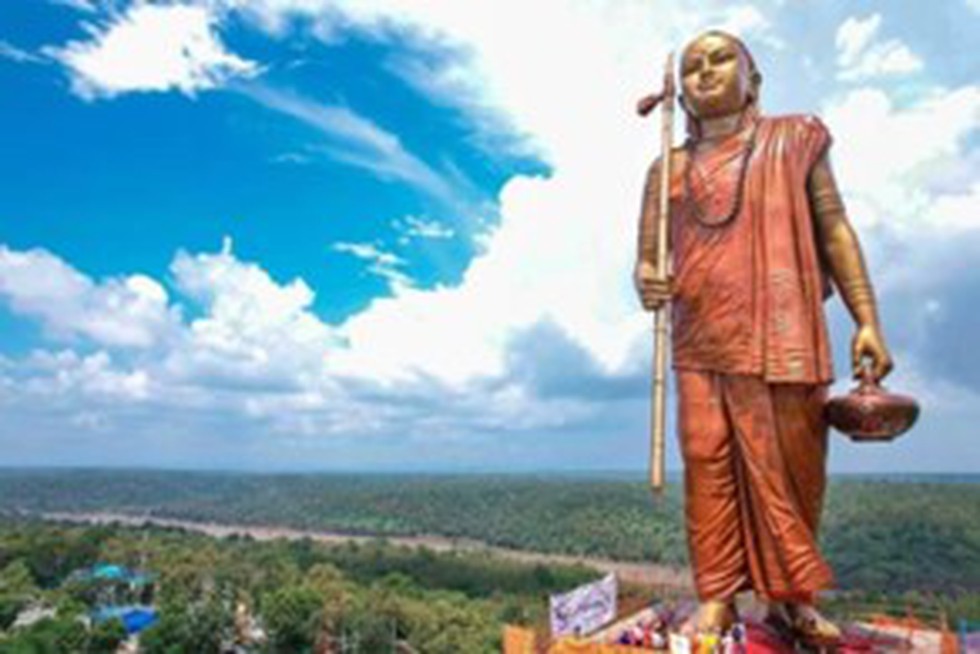About Adi Shankaracharya:
- Adi Shankaracharya, or Shankara, as he was known, was an ancient Indian philosopher and theologian who lived in the early 8th century CE.
- Birth: He was born in Kalady, a village in present-day Kerala.
- Philosophical Contributions:
- He is best known for his role in the development and propagation of Advaita Vedanta, a non-dualistic school of Hindu philosophy.
- He amalgamated the ideologies of ‘Advaita Vedanta’ and also explained the basic ideas of Upanishads.
- His most important work is his efforts to synthesize the six sub-sects, known as ‘Shanmata.’ ‘Shanmata’, which literally translates to ‘six religions,’ is the worship of six supreme deities.
- Shankaracharya explained the existence of one Supreme Being (Brahman) and that the six supreme deities are part of one divine power.
- He also founded ‘Dashanami Sampradaya,’ which talks about leading a monastic life.
- While Shankaracharya was a firm believer in ancient Hinduism, he condemned the ‘Mimamsa school of Hinduism’, which was purely based on ritual practices.
- Four Mathas: He established four prominent monastic centers in India, each associated with one of the cardinal directions: Sringeri in the south, Dwarka in the west, Puri in the east, and Badrinath in the north.
- Commentaries and Writings:
- He wrote 18 commentaries on major religious scriptures like the Bhagavad Gita, Brahmasutras, and 12 major Upanishads.
- His review of ‘Brahma Sutra’ is known as ‘Brahmasutrabhasya’, and it is the oldest surviving commentary on ‘Brahma Sutra’.
- He wrote 23 books on the principles contained in the Advaita Vedanta philosophy, including Viveka Chudamani, AtmaBodha, Vakya Vritti, Upadesa Sahasri, etc.
- 72 devotional hymns and meditational hymns like Soundarya Lahari, Nirvana Shatakam, Maneesha Panchakam.
- Death: Adi Shankaracharya is believed to have attained Samadhi (a state of deep meditation or realization) at the young age of 32 in Kedarnath in the Himalayas.
Key Facts about Advaita Vedanta:
- It refers to the non-dualistic school of Hindu philosophy. It is a subschool of Vedanta, which itself is one of six orthodox schools of Hindu philosophy.
- It is derived mostly from the Upanishads and elaborated in detail by eminent scholars like Sri Adi Shankaracharya and Gaudapada.
- Dvaita means duality, and Advaita means nonduality. It emphasizes the fundamental oneness or non-duality of all existence.
- It posits that the ultimate reality, known as Brahman, is the only true, unchanging, and absolute reality.
- Everything else, including the individual self (Atman), the material world (Prakriti), and the gods, is ultimately an illusion (maya) or a temporary manifestation of Brahman.
- In other words, there is no fundamental distinction or separation between the individual self and the ultimate reality.
- Jiva (Individual Soul): In Advaita Vedanta, the individual soul or jiva is seen as an expression of Brahman temporarily bound by the limitations of the physical body and mind.
- Moksha (Liberation):
- Liberation (moksha) is achieved when the jiva realizes its essential identity with Brahman.
- Moksha is the ultimate goal of Advaita Vedanta.
- It is the liberation from the cycle of birth and death and the realization of one's true nature as Brahman.
- Moksha is attained through self-realization (atma-jnana) and the removal of ignorance (avidya).
- Advaita Vedanta offers various paths to realization, including Jnana Yoga (the path of knowledge), Bhakti Yoga (the path of devotion), and Karma Yoga (the path of selfless action).
- While Advaita Vedanta teaches that the world is ultimately an illusion, it acknowledges the relative reality of the empirical world and encourages individuals to fulfill their worldly duties (dharma) while seeking spiritual realization.
